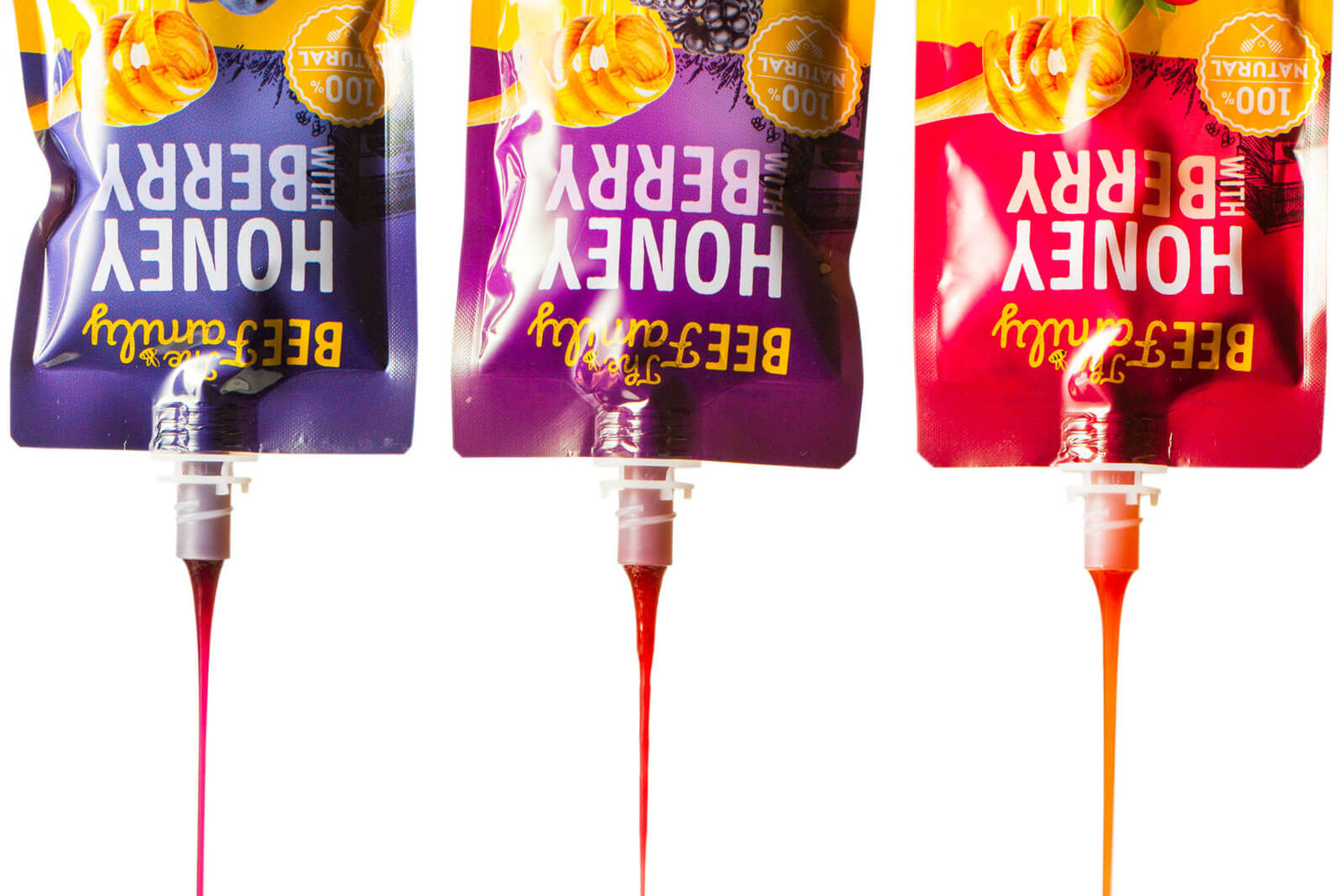The Bee Family
WHERE DO THE BEE FAMILY PRODUCTS COME FROM?
Our base is in Barcelona, but the family behind our company is a Polish beekeeping tradition of generations and more than 100 years.
We produce honey in our own apiary in Poland and firmly believe that the best food for our health comes from nature. That is why 100% of our raw materials come from the EU's wild forests.
HOW DOES THE 100% SATISFACTION GUARANTEE WORK?
This warranty is valid for your first order of the Tasting Package.
We are so sure that you will fall in love with our honey that if for some reason you are not satisfied, we will refund 100% of the price of the Tasting Package to you.
Just contact our support for a refund.
FROM WHERE CAN I ORDER THE BEE FAMILY PRODUCTS?
You can find our products on Kesko's chain stores (K-Citymarket, K-Supermarket, K-Market) on the honey shelf (Finland).
Please let your local retailer know if they still have the product off the shelf.
You can also order the Marjahunaja maistelupaketin from our online store.
HOW LONG DOES THE DELIVERY TAKE?
Our products will usually be processed for mailing within approximately 2 days of receiving your order.
The transports leave Porvoo in accordance with Posti's transport conditions and you will normally receive your order in about 4-6 working days.
WHAT IS AN ONLINE ORDER RETURN POLICY?
You can review our general return policy via this link..
HOW CAN I CONTACT CUSTOMER SERVICE?
You can fill out the form Contact Us on our website or write to us directly at
Info@TheBeeFamilyShop.com
Honey With Berry
IS HONEY WITH BERRY A NATURAL PRODUCT?
Of course! Both the honey and the berries used to make it are 100% natural.
DOES BERRY HONEY CONTAIN ARTIFICIAL PRESERVATIVES?
No
None of our products do not contain artificial ingredients or added preservatives, dyes, sugars or emulsifiers.
That is, nothing that is not 100% derived from a natural raw material.
DOES HONEY WITH BERRY HAVE GLUTEN?
No, it is a gluten free product.
WHAT IS THE EXPIRY DATE OF HONEY WITH BERRY?
Honey is one of the few foods that does not expire. In fact, the oldest known sample of honey was found in a tomb in ancient Egypt and was over 3,000 years old and completely edible. Unlike wine, however, honey tastes much better after the first few years of harvest.
Although honey never expires, we mark each product with an expiry date in accordance with the European Union's traceability regulation.
The product has expiry as either closed or already opened package for 1.5 years.
DOES HONEY CONTAIN SUGAR?
No sugar has been added to the honey we use for Honey With Berry. It is as sweet as nature has done it with all its sweeteners and nutrients.
Natural honey contains simple sugars that are quickly absorbed by the body. For this reason, honey is a good snack, for example, for an athlete during or after a performance.
WHY DOES HONEY CRYSTALIZE?
Crystallization of honey is a natural process when honey turns from a liquid to a solid. This process is noticeable especially when temperatures move between 10-20 degrees as the pace of the process accelerates.
Honey never loses its natural properties and in order to make honey back liquid it is necessary to use heat.
The easiest way to restore it to its original state is to immerse the honey pack in lukewarm (about hand-warm, 35-40 ° C) water for 5-10 minutes.
WHY DO WE USE THE FREEZE DRYING PROCESS FOR OUR BERRIES?
The lyophilization process, or more commonly the freeze-drying process, is based on the evaporation of water until the water content of the berries is almost completely removed.
Normal drying removes only about 70% of the water content of the berries while freeze-drying brings the same figure to 99%.
Freshly picked berries are immediately dehydrated by cooling and drying (lyophilization) to ensure that all the nutrients in the berries are retained in the best possible way.
HOW DO NATURAL BERRIES DIFFER FROM BERRIES GROWN IN A GREENHOUSE?
There are several differences between berries naturally harvested from the forest and grown in greenhouses. The most significant are the size, taste and nutritional values of the berries.
Wild berries tend to be smaller, have a stronger flavor and a much higher nutritional value.

